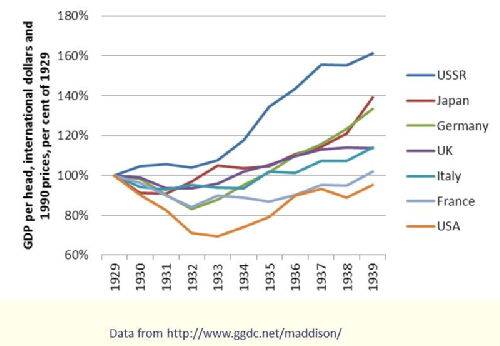the other mike
Diamond Member
- Thread starter
- #1,701
Where is Dale Smith when I need him ?
Last edited:
Follow along with the video below to see how to install our site as a web app on your home screen.

Note: This feature currently requires accessing the site using the built-in Safari browser.
Where is Dale Smith when I need him ?
Or second hand smoke cancer ?Where is Dale Smith when I need him ?
Contrail poisoning...….he didn't make it.
Or second hand smoke cancer ?Where is Dale Smith when I need him ?
Contrail poisoning...….he didn't make it.

He knew too much ?Or second hand smoke cancer ?Where is Dale Smith when I need him ?
Contrail poisoning...….he didn't make it.

Maybe he was too close to that nuke Paul was warning us about?
Socialism is the epitome of ignorance...
She Survived China's Forced Labor Camp. Now She's Urging Americans to Reject Socialism.
Ask them how well capitalism was doing in 1929.
View attachment 245504 View attachment 245506 View attachment 245505
To the extent that capitalism’s problems – inequality, instability (cycles/crises), etc. – stem in part from its production relationships, reforms focused exclusively on regulating or supplanting markets will not succeed in solving them. For example, Keynesian monetary policies (focused on raising or lowering the quantity of money in circulation and, correspondingly, interest rates) do not touch the employer-employee relationship, however much their variations redistribute wealth, regulate markets, or displace markets in favor of state-administered investment decisions. Likewise, Keynesian fiscal policies (raising or lowering taxes and government spending) do not address the employer-employee relationship.
Keynesian policies also never ended the cyclical instability of capitalism. The New Deal and European social democracy left capitalism in place in both state and private units (enterprises) of production notwithstanding their massive reform agendas and programs. They thereby left capitalist employers facing the incentives and receiving the resources (profits) to evade, weaken and eventually dissolve most of those programs.
It is far better not to distribute wealth unequally in the first place than to re-distribute it after to undo the inequality. For example, FDR proposed in 1944 that the government establish a maximum income alongside a minimum wage; that is one among the various ways inequality could be limited and thereby redistribution avoided. Efforts to redistribute encounter evasions, oppositions, and failures that compound the effects of unequal distribution itself. Social peace and cohesion are the victims of redistribution sooner or later. Reforming markets while leaving the relations/organization of capitalist production unchanged is like redistribution. Just as redistribution schemes fail to solve the problems rooted in distribution, market-focused reforms fail to solve the problems rooted in production.
Since 2008, capitalism has showed us all yet again its deep and unsolved problems of cyclical instability, deepening inequality and the injustices they both entail. Their persistence mirrors that of the capitalist organization of production. To successfully confront and solve the problems of economic cycles, income and wealth inequality, and so on, we need to go beyond the capitalist employer-employee system of production. The democratization of enterprises – transitioning from employer-employee hierarchies to worker cooperatives – is a key way available here and now to realize the change we need.
Worker coops democratically decide the distribution of income (wages, bonuses, benefits, profit shares, etc.) among their members. No small group of owners and the boards of directors they choose would, as in capitalist corporations, make such decisions. Thus, for example, it would be far less likely that a few individuals in a worker coop would earn millions while most others could not afford to send children to college. A democratic worker coop decision on the distribution of enterprise income would be far less unequal than what typifies capitalist enterprises. A socialism for the 21st century could and should include the transition from a capitalist to a worker-coop-based economic system as central to its commitments to less inequality and less social conflict over redistribution.
Capitalism Is Not the “Market System”
An OP should be 3-4 paragraphs, link, content.
Angelo
Copyright. Link Each "Copy & Paste" to It's Source. Only paste a small to medium section of the material.
USMB Rules and Guidelines
Ask them how well capitalism was doing in 1929.
View attachment 245504 View attachment 245506 View attachment 245505
To the extent that capitalism’s problems – inequality, instability (cycles/crises), etc. – stem in part from its production relationships, reforms focused exclusively on regulating or supplanting markets will not succeed in solving them. For example, Keynesian monetary policies (focused on raising or lowering the quantity of money in circulation and, correspondingly, interest rates) do not touch the employer-employee relationship, however much their variations redistribute wealth, regulate markets, or displace markets in favor of state-administered investment decisions. Likewise, Keynesian fiscal policies (raising or lowering taxes and government spending) do not address the employer-employee relationship.
Keynesian policies also never ended the cyclical instability of capitalism. The New Deal and European social democracy left capitalism in place in both state and private units (enterprises) of production notwithstanding their massive reform agendas and programs. They thereby left capitalist employers facing the incentives and receiving the resources (profits) to evade, weaken and eventually dissolve most of those programs.
It is far better not to distribute wealth unequally in the first place than to re-distribute it after to undo the inequality. For example, FDR proposed in 1944 that the government establish a maximum income alongside a minimum wage; that is one among the various ways inequality could be limited and thereby redistribution avoided. Efforts to redistribute encounter evasions, oppositions, and failures that compound the effects of unequal distribution itself. Social peace and cohesion are the victims of redistribution sooner or later. Reforming markets while leaving the relations/organization of capitalist production unchanged is like redistribution. Just as redistribution schemes fail to solve the problems rooted in distribution, market-focused reforms fail to solve the problems rooted in production.
Since 2008, capitalism has showed us all yet again its deep and unsolved problems of cyclical instability, deepening inequality and the injustices they both entail. Their persistence mirrors that of the capitalist organization of production. To successfully confront and solve the problems of economic cycles, income and wealth inequality, and so on, we need to go beyond the capitalist employer-employee system of production. The democratization of enterprises – transitioning from employer-employee hierarchies to worker cooperatives – is a key way available here and now to realize the change we need.
Worker coops democratically decide the distribution of income (wages, bonuses, benefits, profit shares, etc.) among their members. No small group of owners and the boards of directors they choose would, as in capitalist corporations, make such decisions. Thus, for example, it would be far less likely that a few individuals in a worker coop would earn millions while most others could not afford to send children to college. A democratic worker coop decision on the distribution of enterprise income would be far less unequal than what typifies capitalist enterprises. A socialism for the 21st century could and should include the transition from a capitalist to a worker-coop-based economic system as central to its commitments to less inequality and less social conflict over redistribution.
Capitalism Is Not the “Market System”
An OP should be 3-4 paragraphs, link, content.
Angelo
Copyright. Link Each "Copy & Paste" to It's Source. Only paste a small to medium section of the material.
USMB Rules and Guidelines
And it was socialism that made the depression longer and deeper...as FDR tried to socialize the government......
How is capitalism working now, you doofus? Enjoy posting on whatever capitialistic created electronic device you are using? You socialists are so tiring.....you would simply be annoying if you didn't put millions of people into mass graves whenever you get real power...
Dude...just stop with your propaganda. Nobody...literally nobody...is believing your ignorant bullshit. You’re too lazy to even add links to some socialist propaganda website. The numbers are all made up and bullshit.Socialism is the epitome of ignorance...
She Survived China's Forced Labor Camp. Now She's Urging Americans to Reject Socialism.
Oh yeah?
#1 economic growth period in 21st century = China (Socialist)
#1 economic growth period in 20th century = Japan (Socialist)
#1 economic growth period in 20th century Europe & #2 in the World = Franco Fascist (Socialist)
#1 economic growth period in 20th century USA = FDR Fascism lite (Socialist)
Nothing says “#1 economic growth” like total economic collapse!#1 economic growth period in 21st century = China (Socialist)

Yeah, sure, that’s why FDR oversaw the Great Depression.Yeah sure, that's why FDR is the #1 champion of 20th Century American economic growth.
(Rolls eyes)

Socialism DOES suck, and it has NEVER been a success throughout modern history. Look how well Venezuela is doing.(sarcasm)Nothing says “#1 economic growth” like total economic collapse!#1 economic growth period in 21st century = China (Socialist)
Forget the Trade War. China Is Already in Crisis
Dude...just stop with your propaganda. Nobody...literally nobody...is believing your ignorant bullshit. You’re too lazy to even add links to some socialist propaganda website. The numbers are all made up and bullshit.Socialism is the epitome of ignorance...
She Survived China's Forced Labor Camp. Now She's Urging Americans to Reject Socialism.
Oh yeah?
#1 economic growth period in 21st century = China (Socialist)
#1 economic growth period in 20th century = Japan (Socialist)
#1 economic growth period in 20th century Europe & #2 in the World = Franco Fascist (Socialist)
#1 economic growth period in 20th century USA = FDR Fascism lite (Socialist)

Socialism DOES suck, and it has NEVER been a success throughout modern history. Look how well Venezuela is doing.(sarcasm)Nothing says “#1 economic growth” like total economic collapse!#1 economic growth period in 21st century = China (Socialist)
Forget the Trade War. China Is Already in Crisis
Yeah, sure, that’s why FDR oversaw the Great Depression.Yeah sure, that's why FDR is the #1 champion of 20th Century American economic growth.
(Rolls eyes)
You’re not getting to mooch off of American, polish parasite. Most along.